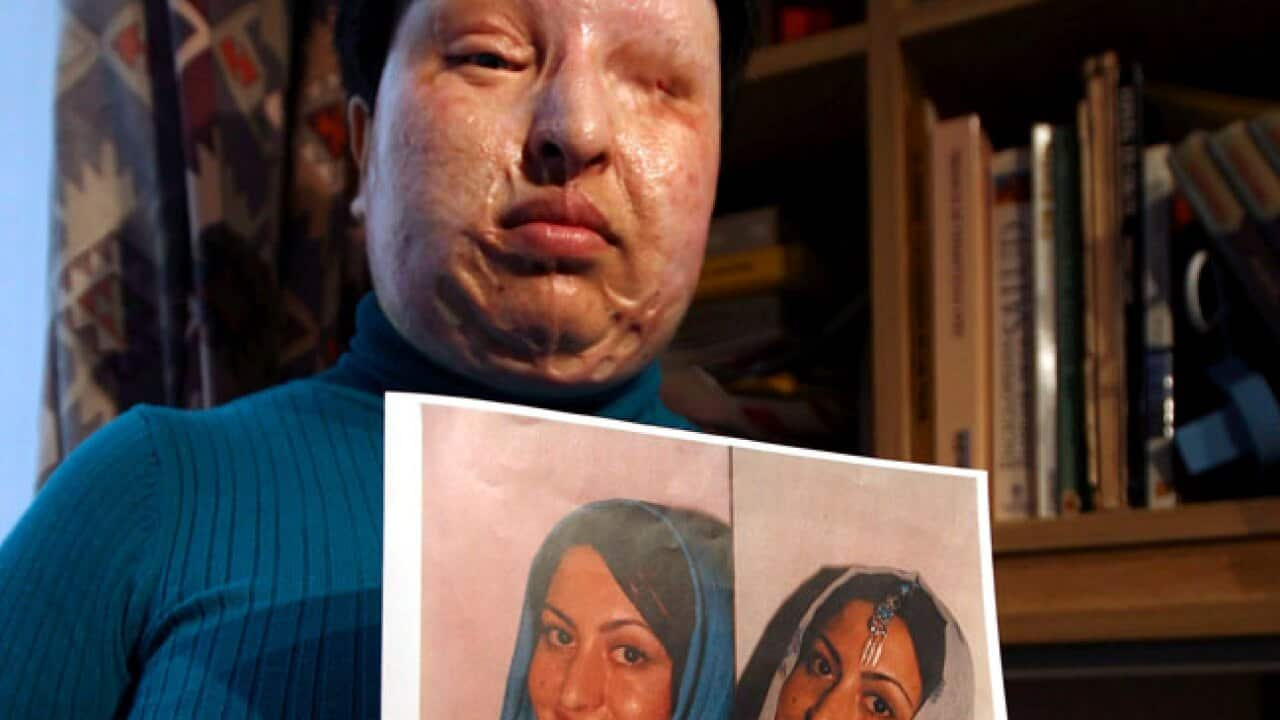The news agency gave no source for its report and there was no official word on any stay.
The sentence against Majid Movahedi had been scheduled to be carried out at noon (0730 GMT) at the judiciary hospital in Tehran in the presence of a physician and representatives of the coroners' office and the prosecution.
"The execution of qesas (retribution in kind) of Majid... has been postponed to an unknown date," ISNA reported on its website just hours before the appointed time.
Movahedi was sentenced to be blinded in both eyes in February 2009 after being convicted of hurling acid in the face of university classmate Ameneh Bahrami when she repeatedly spurned his offer of marriage.
His victim, who has been the driving force behind the sentence, had travelled to the Iranian capital from Spain in the expectation of it being carried out and had even said she was ready to do the blinding herself.
"I've suffered so much in these years but now I am really happy," Bahrami said in an interview published on Saturday by the 7sobh daily.
"The verdict is completely legal and I would like to carry it out. But if it is not possible, then the physician designated by the judiciary will do it," she said.
According to the paper, it would be first time such a penalty was carried out in Iran.
Amnesty call for stay
Amnesty International had called on Friday for a stay of the sentence, which it described as "a cruel and inhuman punishment amounting to torture."
"Regardless of how horrific the crime suffered by Ameneh Bahrami, being blinded with acid is a cruel and inhuman punishment amounting to torture," the London-based human rights watchdog said.
"The Iranian authorities have a responsibility under international law to ensure it does not go ahead."
The Islamic sharia code in force in Iran provides for eye-for-an-eye-style retributive justice, most commonly for murder or those convicted of causing intentional physical injury.
Bahrami, who was 24 when she met Movahedi in 2002, now lives in Spain where she has been undergoing medical treatment for her disfigurement for years. She is blind in both eyes and still has serious injuries to her face and body.
She told ISNA that the implementation of qesas would serve as a lesson for other acid throwers in the country.
"I still strongly stand with the carrying out of the qesas. I want qesas. I will become more serene," she told the news agency on May 11.
"This serenity will not stem from the culprit suffering hardship and pain but that (with the carrying out of the sentence) there is the probability of more deterrence regarding those who want to commit this crime."
Acid attacks reported
A number of acid attacks have been reported in Iran in recent years and the press has been generally supportive of Bahrami, publishing sympathetic interviews with her, and photographs of her face before and after the attack.
In December 2010, Iran's supreme court upheld another sentence to blinding handed down against a man convicted of an acid attack against his wife's lover that deprived him of his sight. There has been no reported confirmation of it ever being carried out.









